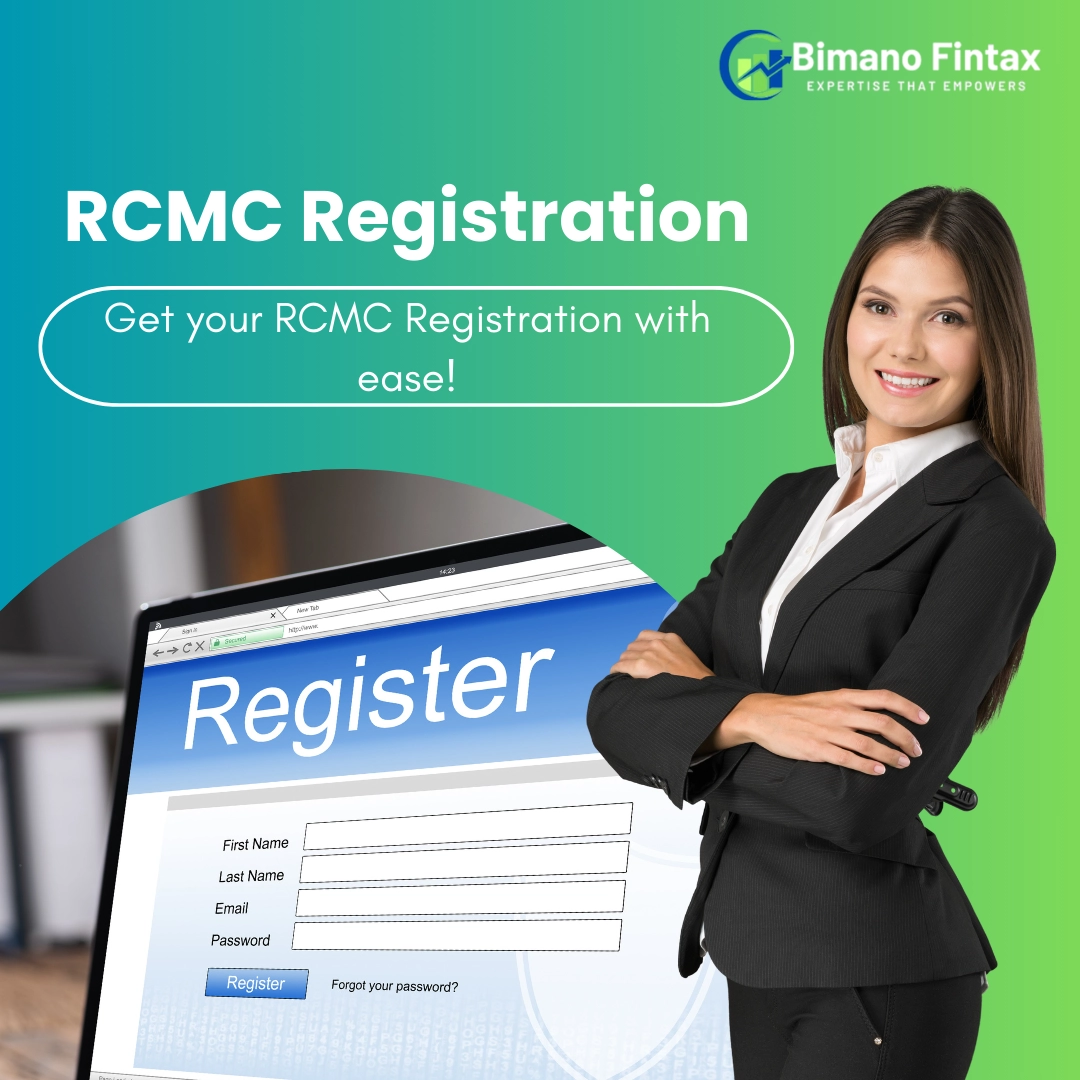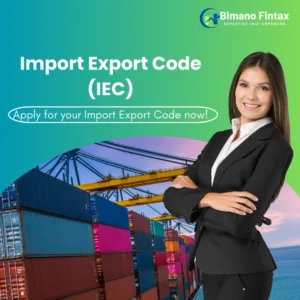Description
Introduction to Registration Cum Membership Certificate (RCMC)
The Registration Cum Membership Certificate (RCMC) is a pivotal document in the domain of international trade, particularly for those involved in the importation and exportation of restricted products. Issued by Export Promotion Councils (EPCs) or Commodity Boards in India, the RCMC serves as an official recognition of a firm’s credentials as an exporter or importer. The Foreign Trade Policy (FTP) of India mandates that businesses dealing with certain products must obtain this certificate to streamline and regulate trade activities.
Understanding the RCMC is crucial for companies aiming to engage in global commerce. It not only legitimizes their operations but also opens the door to various governmental incentives and support mechanisms aimed at promoting foreign trade. The certificate is a testament to compliance with the prescribed standards and regulations, fostering trust and reliability among international trading partners.
Furthermore, the RCMC ensures that the exporters and importers adhere to the guidelines set forth by specific EPCs or Commodity Boards. These entities play a significant role in guiding businesses through the complexities of international trade, offering insights into market trends, quality standards, and other pertinent information. Thus, the RCMC is more than just a regulatory formality; it is a strategic tool that enhances a firm’s competitive edge in the global marketplace.
In the context of restricted products, which are subject to stringent regulations due to their sensitive nature or potential impact on health, safety, and security, the RCMC becomes even more critical. It ensures that only authorized entities engage in the trade of these products, thereby safeguarding national and international interests. By obtaining the RCMC, businesses not only comply with the law but also contribute to the integrity and safety of global trade practices.
Role of Export Promotion Councils and Commodity Boards
Export Promotion Councils (EPCs) and Commodity Boards are pivotal in the issuance of the Registration Cum Membership Certificate (RCMC), which is essential for importing and exporting restricted products. These bodies are established by the Director General of Foreign Trade (DGFT) to regulate and promote the trade of specific commodities, ensuring compliance with international trade standards and practices.
EPCs and Commodity Boards serve as intermediaries between the government and the exporters. They facilitate the exporters’ access to various schemes and benefits offered by the government, aimed at enhancing the competitiveness of Indian goods in the global market. Moreover, these councils and boards provide crucial market intelligence, helping exporters to make informed decisions.
Each EPC or Commodity Board specializes in a particular sector, ensuring focused and effective support. For instance, the Apparel Export Promotion Council (AEPC) caters to the apparel and textile industry, while the Marine Products Export Development Authority (MPEDA) looks after the marine sector. Similarly, the Engineering Export Promotion Council (EEPC) is dedicated to the engineering goods industry, and the Gems and Jewellery Export Promotion Council (GJEPC) supports the gems and jewellery sector.
The role of these bodies extends beyond merely issuing RCMCs. They also organize trade fairs, exhibitions, and buyer-seller meets to promote Indian products globally. Furthermore, they conduct training programs and workshops to enhance the skills of exporters, ensuring adherence to international quality standards.
In summary, Export Promotion Councils and Commodity Boards play a crucial role in the issuance of RCMCs and the overall export ecosystem. By providing comprehensive support and guidance, they help streamline the process of exporting restricted products, thereby contributing significantly to the growth of India’s international trade.
Foreign Trade Policy (FTP) Regulations Governing RCMC
The Foreign Trade Policy (FTP) of India serves as a comprehensive framework that governs the country’s import and export activities. Within this framework, the Registration Cum Membership Certificate (RCMC) is a critical document mandated for businesses engaged in trading restricted products. The FTP emphasizes strict compliance with these regulations to ensure that trade practices adhere to national and international standards.
Under the provisions of the FTP, it is stipulated that any exporter or importer dealing with restricted products must obtain an RCMC from the concerned Export Promotion Council (EPC) or Commodity Board. This requirement is articulated in the policy to ensure that trade activities are monitored and regulated effectively. The RCMC acts as a formal endorsement that the entity is a recognized member of the relevant EPC, thereby facilitating smoother trade operations.
Several sections of the FTP elaborate on the need for an RCMC. According to the policy, products categorized as restricted require special permissions for export or import. These permissions are contingent upon the possession of a valid RCMC. Additionally, the FTP outlines specific compliance requirements that businesses must fulfill to maintain their RCMC status. These include adhering to quality standards, submitting regular trade reports, and participating in promotional activities organized by the respective EPCs.
Furthermore, the FTP mandates regular audits and inspections to ensure compliance with the regulations governing RCMC. Non-compliance can lead to penalties, including the suspension or cancellation of the RCMC, thereby hindering the ability to engage in international trade. Thus, obtaining and maintaining an RCMC is not just a regulatory formality but a critical component of responsible and compliant trading practices.
In essence, the FTP’s regulations regarding the RCMC are designed to create a structured and transparent trade environment. By obliging businesses to secure this certificate, the policy aims to promote ethical trading, enhance product quality, and ensure that all trade activities contribute positively to the national economy.
Benefits of Obtaining an RCMC
Obtaining a Registration Cum Membership Certificate (RCMC) offers numerous advantages for businesses engaged in the import and export of restricted products. One of the primary benefits is the access to various concessions and privileges under the Foreign Trade Policy. These include duty exemptions, reduced tariffs, and other fiscal incentives designed to promote international trade. Such financial benefits can significantly reduce operational costs, thereby improving the overall profitability of the business.
Additionally, an RCMC can streamline the entire process of international trade. With this certificate, businesses can navigate the complex regulatory environment more efficiently, ensuring compliance with the rules and regulations set forth by the Directorate General of Foreign Trade (DGFT) and other governing bodies. This facilitates smoother operations, reducing administrative burdens and the likelihood of encountering legal issues.
Another significant advantage is the eligibility for export incentives. Businesses holding an RCMC can avail various schemes and benefits offered by the government to boost exports. These incentives may include duty drawback schemes, export promotion capital goods (EPCG) schemes, and other financial aids that can provide a competitive edge in the global market. Such advantages can help businesses expand their reach and increase their market share internationally.
Moreover, having an RCMC enhances the credibility of the business with trading partners. It serves as a mark of authenticity and reliability, reassuring international clients and partners of the business’s compliance with regulatory standards and commitment to quality. This can foster stronger business relationships and build trust, which is crucial for long-term success in international trade.
In summary, obtaining an RCMC is not just a regulatory requirement but a strategic asset for businesses engaged in the import and export of restricted products. It provides financial benefits, facilitates smoother operations, grants access to export incentives, and significantly enhances the business’s credibility in the international market.
Process of Applying for an RCMC
Applying for a Registration Cum Membership Certificate (RCMC) is a structured process that requires meticulous attention to detail. The procedure begins with the preparation of the necessary documentation. Applicants must gather essential documents such as a valid Importer Exporter Code (IEC), proof of business establishment, and any sector-specific certifications that may be applicable. Additionally, details of the products intended for import or export should be clearly outlined.
The application procedure typically involves submitting these documents to the relevant Export Promotion Council (EPC) or Commodity Board that aligns with the applicant’s business sector. Most councils offer both online and offline application options. For an online application, applicants must register on the council’s official website and fill out the RCMC application form. This form will require detailed information about the business, including its legal structure, ownership, and financial standing.
Once the application is submitted, it undergoes a verification process by the council. This verification includes scrutinizing the provided documentation and possibly conducting an on-site inspection of the business premises. The timelines for this verification process can vary, but it generally takes between 15 to 30 working days. Applicants are advised to ensure all submitted information is accurate and complete to avoid delays.
Eligibility for an RCMC hinges on several criteria. The primary criterion is that the applicant must be engaged in the business of import or export of restricted products. Additionally, the applicant should be a member of the relevant Export Promotion Council or Commodity Board. Some councils may also impose specific conditions, such as a minimum turnover requirement or adherence to certain quality standards.
Meeting these conditions and providing complete and accurate documentation are crucial steps in obtaining an RCMC. Businesses looking to expand their import and export operations must carefully follow these guidelines to ensure a smooth application process.
Common Challenges and How to Overcome Them
Applying for a Registration Cum Membership Certificate (RCMC) can present various challenges, particularly for businesses new to the import-export landscape. One primary hurdle is understanding and complying with the myriad regulations that govern the issuance of RCMCs. These regulations can be complex and may vary depending on the product category and the exporting or importing country. To navigate these effectively, it is crucial to stay updated with the latest guidelines issued by the relevant Export Promotion Councils (EPCs) and government bodies. Regular consultation with legal experts or trade consultants can also provide valuable insights and ensure compliance.
Bureaucratic obstacles are another significant challenge. The process of obtaining an RCMC often involves multiple steps, including documentation, verification, and approval from various authorities. This can be time-consuming and daunting, especially for small businesses with limited resources. To streamline this process, it is advisable to maintain meticulous records and ensure that all required documents are complete and accurate before submission. Utilizing digital tools and platforms that facilitate document management and track application status can also help in reducing delays and improving efficiency.
Communication barriers can further complicate the RCMC application process. Differences in language, terminology, and interpretation of regulations can lead to misunderstandings and errors. Engaging with professional translators or local agents who are well-versed in the language and regulatory environment of the target market can mitigate this challenge. Additionally, participating in workshops, seminars, and training programs organized by EPCs or trade associations can enhance understanding and provide practical insights into the application process.
Lastly, staying proactive and informed is key to overcoming challenges related to RCMC applications. Regularly reviewing updates from EPCs, attending industry events, and networking with peers can provide valuable information and support. By adopting a proactive approach and leveraging available resources, businesses can navigate the complexities of obtaining an RCMC more effectively and ensure smooth operations in their import-export activities.
Case Studies: Success Stories
Real-world experiences provide valuable insights into the practical benefits of obtaining a Registration Cum Membership Certificate (RCMC). Here, we examine three businesses that have successfully navigated the RCMC process and reaped significant benefits in their import-export operations.
Case Study 1: ABC Textiles
ABC Textiles, a mid-sized textile manufacturer, sought to expand its market by exporting its premium fabrics. Initially, the company faced numerous challenges, including high customs duties and compliance issues. Upon obtaining the RCMC, ABC Textiles experienced a noticeable reduction in tariffs and gained access to various export promotion schemes. This certification not only facilitated smoother customs clearance but also enhanced its credibility among international buyers. Within a year, their export volume increased by 40%, significantly boosting their revenue.
Case Study 2: Green Agro Products
Green Agro Products, a producer of organic agricultural goods, aimed to import specialized farming equipment to enhance production efficiency. However, the company encountered bureaucratic hurdles and delays. By acquiring an RCMC, Green Agro Products benefited from streamlined import procedures and obtained essential equipment more swiftly. This improvement enabled them to increase their yield and meet growing domestic and international demand. The RCMC also allowed them to participate in international trade fairs, which expanded their network and led to long-term partnerships.
Case Study 3: Tech Innovate Ltd.
Tech Innovate Ltd., a technology startup specializing in innovative consumer electronics, aimed to expand its business globally. Without an RCMC, they struggled with regulatory compliance and high import-export costs. After securing the RCMC, they gained access to government incentives and reduced tariffs. This certification also provided them with a platform to showcase their products at international exhibitions, resulting in increased visibility and sales. The company’s export sales doubled within two years, establishing it as a key player in the global market.
These case studies highlight the tangible advantages that an RCMC can offer to businesses engaged in international trade. Whether it’s reducing costs, easing regulatory compliance, or enhancing market access, the RCMC serves as a critical tool for business growth and success in the import-export sector.
How Bimano Fintax Can Assist You
When it comes to obtaining a Registration Cum Membership Certificate (RCMC) for importing and exporting restricted products, Bimano Fintax stands out as a reliable partner. With extensive expertise in navigating the intricate procedures and regulatory frameworks, Bimano Fintax ensures a seamless experience for businesses seeking to acquire their RCMC efficiently and cost-effectively.
Bimano Fintax offers a comprehensive suite of services tailored to meet the unique needs of exporters and importers. Their team of seasoned professionals is adept at guiding clients through each step of the RCMC application process, from initial documentation to final approval. By leveraging their in-depth knowledge of trade regulations and compliance requirements, Bimano Fintax mitigates the risk of delays and rejections, thereby expediting the acquisition of the certificate.
One of the standout features of Bimano Fintax is their personalized approach to client support. Recognizing that each business has distinct needs, they provide customized solutions that address specific challenges and objectives. Their dedicated support team is readily available to assist clients with any queries or concerns, ensuring that the process remains smooth and hassle-free.
Moreover, Bimano Fintax places a strong emphasis on cost-effectiveness. They offer transparent pricing structures with no hidden charges, making it easier for businesses to plan their budgets. By streamlining the RCMC application process and minimizing administrative burdens, Bimano Fintax enables clients to focus on their core business activities while ensuring compliance with trade regulations.
In summary, Bimano Fintax is a trusted partner for businesses aiming to secure their RCMC for importing and exporting restricted products. Their expertise, comprehensive service offerings, and commitment to client support make them an invaluable resource in the realm of international trade compliance.






Reviews
There are no reviews yet.